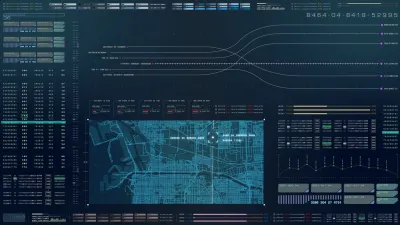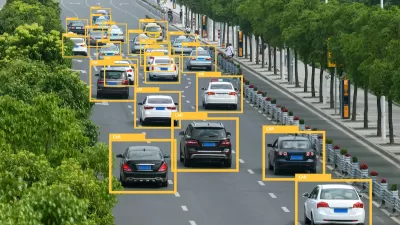Too often, smart city technology is described as an innocuous tool, but Adam Greenfield argues the technology acquiring this data will be used to distribute city resources, an inherently political act.

As smart cities collect more of our information and give cities more data, it's imperative that we understand that the automation of data collection does not make the information perfect or unbiased. In Radical Technologies: The Design of Everyday Life (which has been excerpted and adapted for the Guardian) Adam Greenfield argues that proponents of connected cities exaggerate the benefits of data. "Strongly implicit, is the presumption that whatever policies are arrived at in this way will be applied transparently, dispassionately and in a manner free from politics." No perfect responses to all civic problems exist, and pretending that algorithms can deliver such results endangers cities. "We need to understand that creating an algorithm intended to guide the distribution of civic resources is itself a political act," Greenfield argues.
Greenfield's arguments cover more than cities and deserve to be read in their entirety. While he's not trying to pretend the world can disconnect or should, his investigation centers around cautions like this one. "Advocates of smart cities often seem to proceed as if it is self-evident that each of our acts has a single, salient meaning, which can be recognised, made sense of and acted upon remotely by an automated system, without any possibility of error," a dangerous oversimplification.
FULL STORY: Rise of the machines: who is the ‘internet of things’ good for?

Alabama: Trump Terminates Settlements for Black Communities Harmed By Raw Sewage
Trump deemed the landmark civil rights agreement “illegal DEI and environmental justice policy.”

Planetizen Federal Action Tracker
A weekly monitor of how Trump’s orders and actions are impacting planners and planning in America.

The 120 Year Old Tiny Home Villages That Sheltered San Francisco’s Earthquake Refugees
More than a century ago, San Francisco mobilized to house thousands of residents displaced by the 1906 earthquake. Could their strategy offer a model for the present?

In Both Crashes and Crime, Public Transportation is Far Safer than Driving
Contrary to popular assumptions, public transportation has far lower crash and crime rates than automobile travel. For safer communities, improve and encourage transit travel.

Report: Zoning Reforms Should Complement Nashville’s Ambitious Transit Plan
Without reform, restrictive zoning codes will limit the impact of the city’s planned transit expansion and could exclude some of the residents who depend on transit the most.

Judge Orders Release of Frozen IRA, IIJA Funding
The decision is a victory for environmental groups who charged that freezing funds for critical infrastructure and disaster response programs caused “real and irreparable harm” to communities.
Urban Design for Planners 1: Software Tools
This six-course series explores essential urban design concepts using open source software and equips planners with the tools they need to participate fully in the urban design process.
Planning for Universal Design
Learn the tools for implementing Universal Design in planning regulations.
Clanton & Associates, Inc.
Jessamine County Fiscal Court
Institute for Housing and Urban Development Studies (IHS)
City of Grandview
Harvard GSD Executive Education
Toledo-Lucas County Plan Commissions
Salt Lake City
NYU Wagner Graduate School of Public Service





























